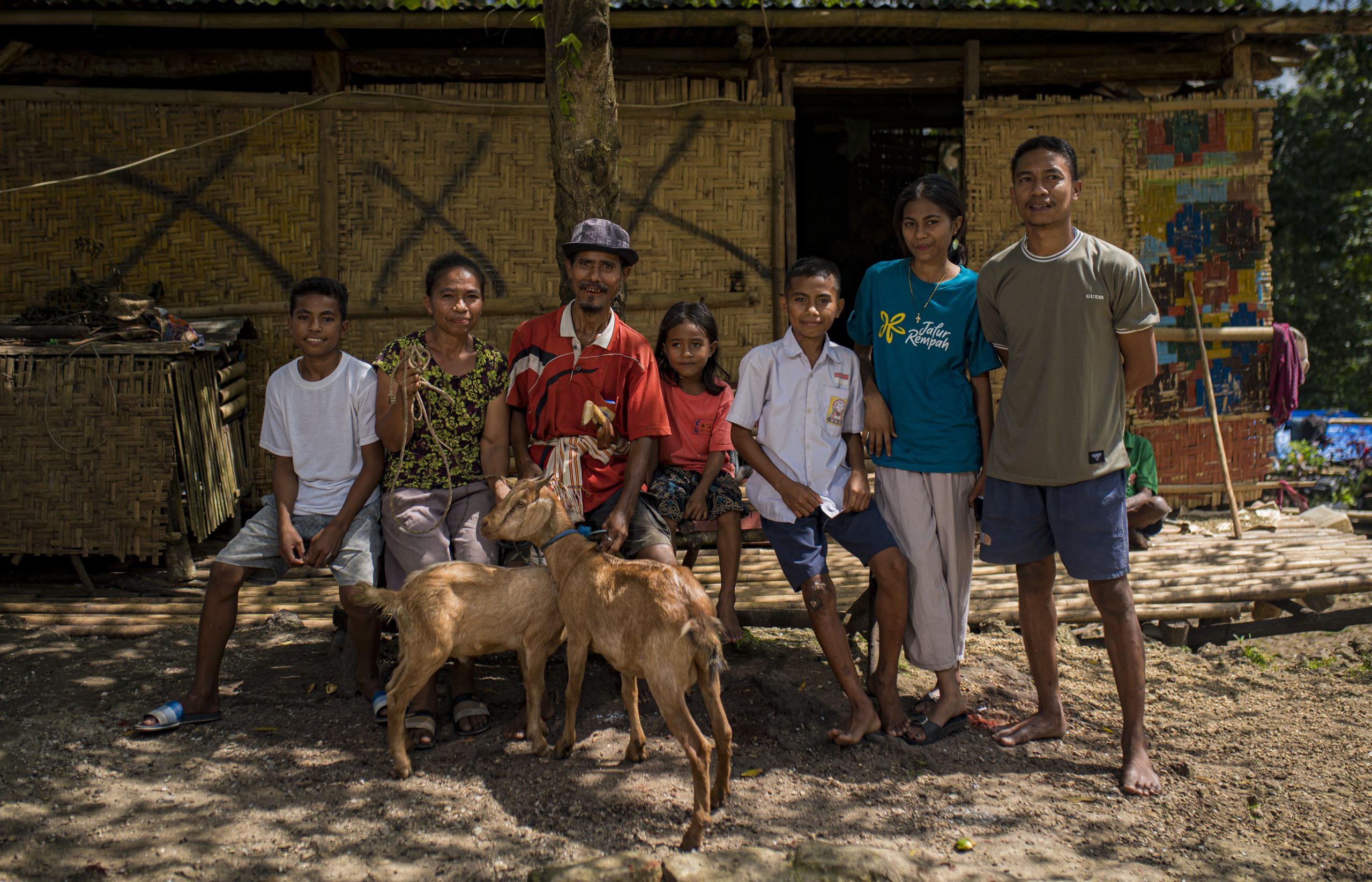
Petrus Malo Lede walked down the gravel path heading to his house in Pandua Tana village. Two goats were munching the grass in front of his yard. One was an adult female, the mother. The other was a young goat, the kid.
Petrus was happy to see the goats grow healthy. A few months ago, the adult female gave birth and is still nursing. “This goat is an assistance from BangKIT friends,” he said, shattering the heat in mid-May 2025.
BangKIT is an Inclusive Rural Community Livelihood Development program in Eastern Indonesia (BangKIT) from BaKTI Foundation. When this program rolled out in 2024, they met at the village hall and the villager’s house.
BangKIT expects the village planning system for livelihood to involve everyone in the village. They listened to the needs and saw how the villagers perceived the village potential. Melkianus Dangnga Ngara, secretary of Pandua Tana Village, was impressed with BangKIT’s approach.
So far, said Melkianus, the village planning program is done through Musrenbang and attended by only a few people. BangKIT’s approach, which provides a broad space and listens to the wishes of the villagers, turns out to be the most significant and fundamental aspect. “We then support their wishes to raise goats. The villagers want this, so they do it happily. Not forced,” he said.
“To us, goat farming is an alternative livelihood for people. Let alone, the group applies a rotation system after the goat have kids.”
In October 2024, BangKIT gave five female goats to the livestock group. Each member keeps one adult female, then looks for a male to mate.
The group applying this livestock system provides equal opportunities to each member. If the assistance or stimulus was given to one person only, the beneficiary will only one family. “So it’s correct. The group makes people help one another. The first five goats are a shared responsibility,” said Melkianus.
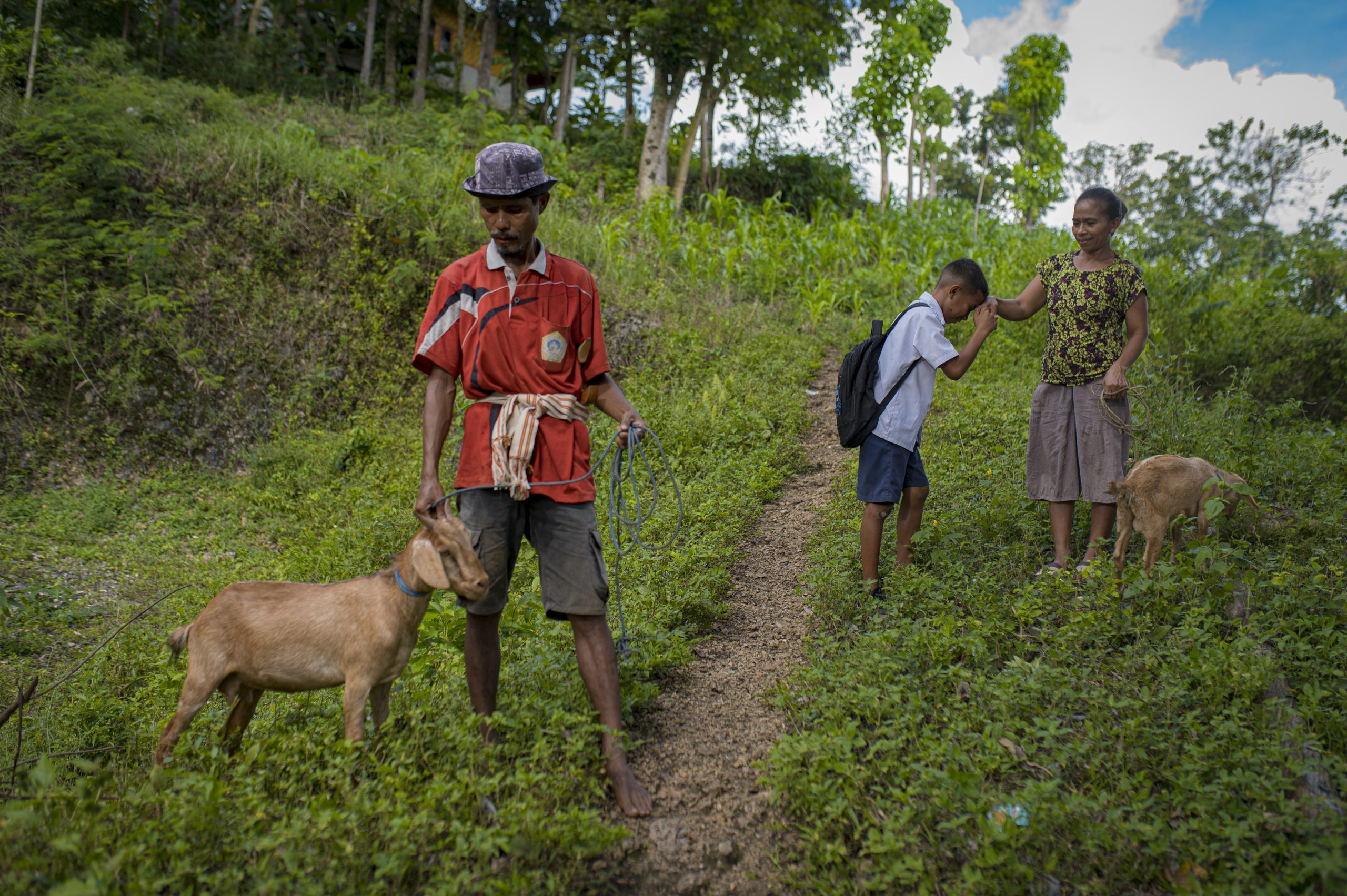
Petrus confirmed the statement. The goats raised by each member of the group were monitored. Each goat became a significant responsibility as it would affect other members. “If my goat dies, the opportunity for rotation will take a longer time, and other members will lose their opportunities,” he said.
Petrus’s young goat was the first kid of this group assistance. “Raising goats is not hard. Plenty of feed and no special care is needed,” he said.
Sumbanese do not eat goats, yet the city development in Sumba Barat Daya District starts showing signs of adequate economic growth. Shops selling goat satay start appearing on the roadsides in Tambolaka and Waikabubak.
Goats give birth twice a year. And, they have a selling price when they are 6 months old. The price of goats in Sumba ranges from 800 thousand to 2 million rupiahs. “If the goat gives birth to a female, it will be given to other group members. If the kid is male, it can be raised to become the next breeding male,” said Petrus.
For Petrus, raising goats has many advantages. Their manure can be used for compost. “Only two goats, not so much manure. But that is enough for the vegetable plants near the house,” he continued.
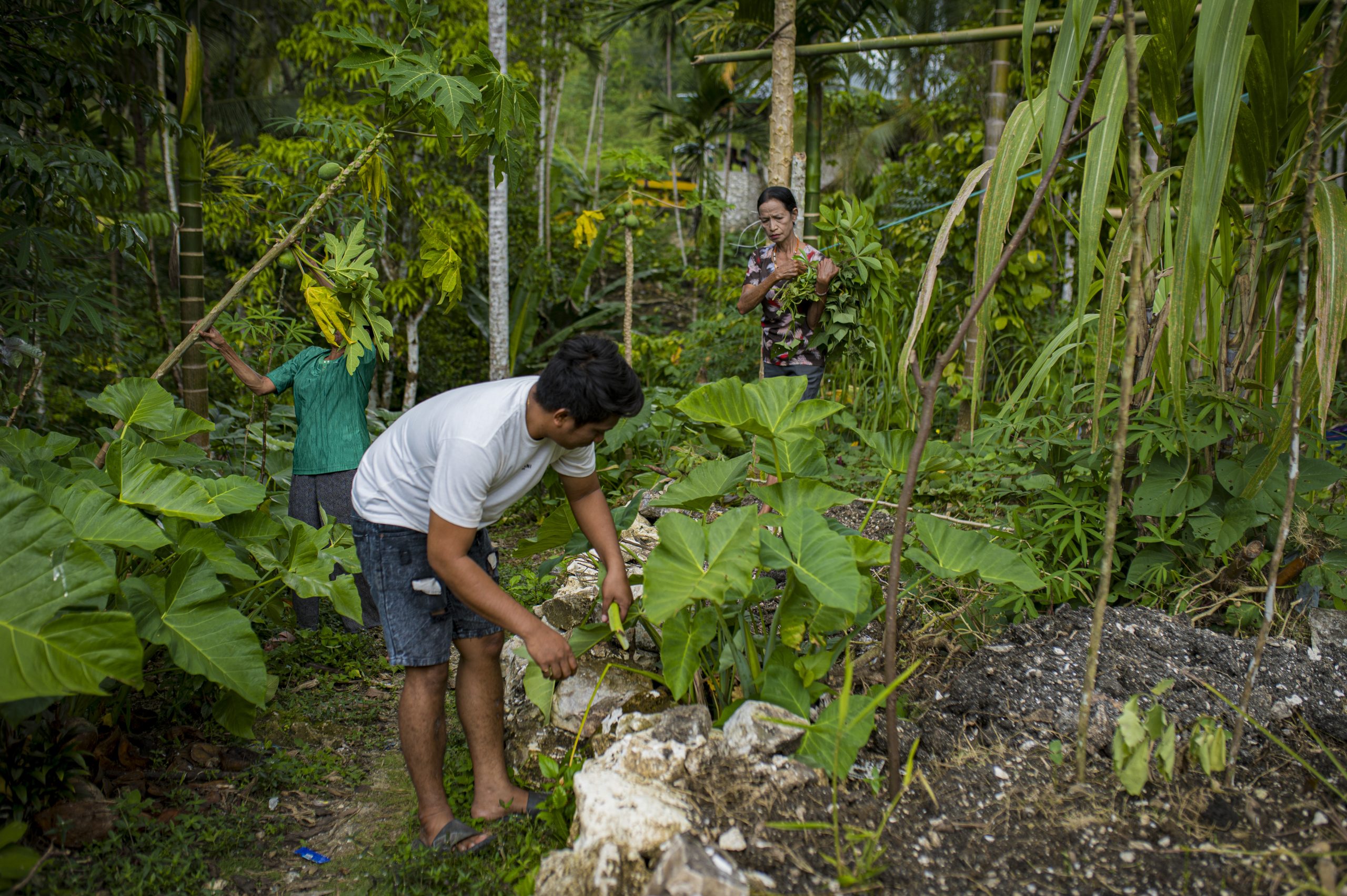
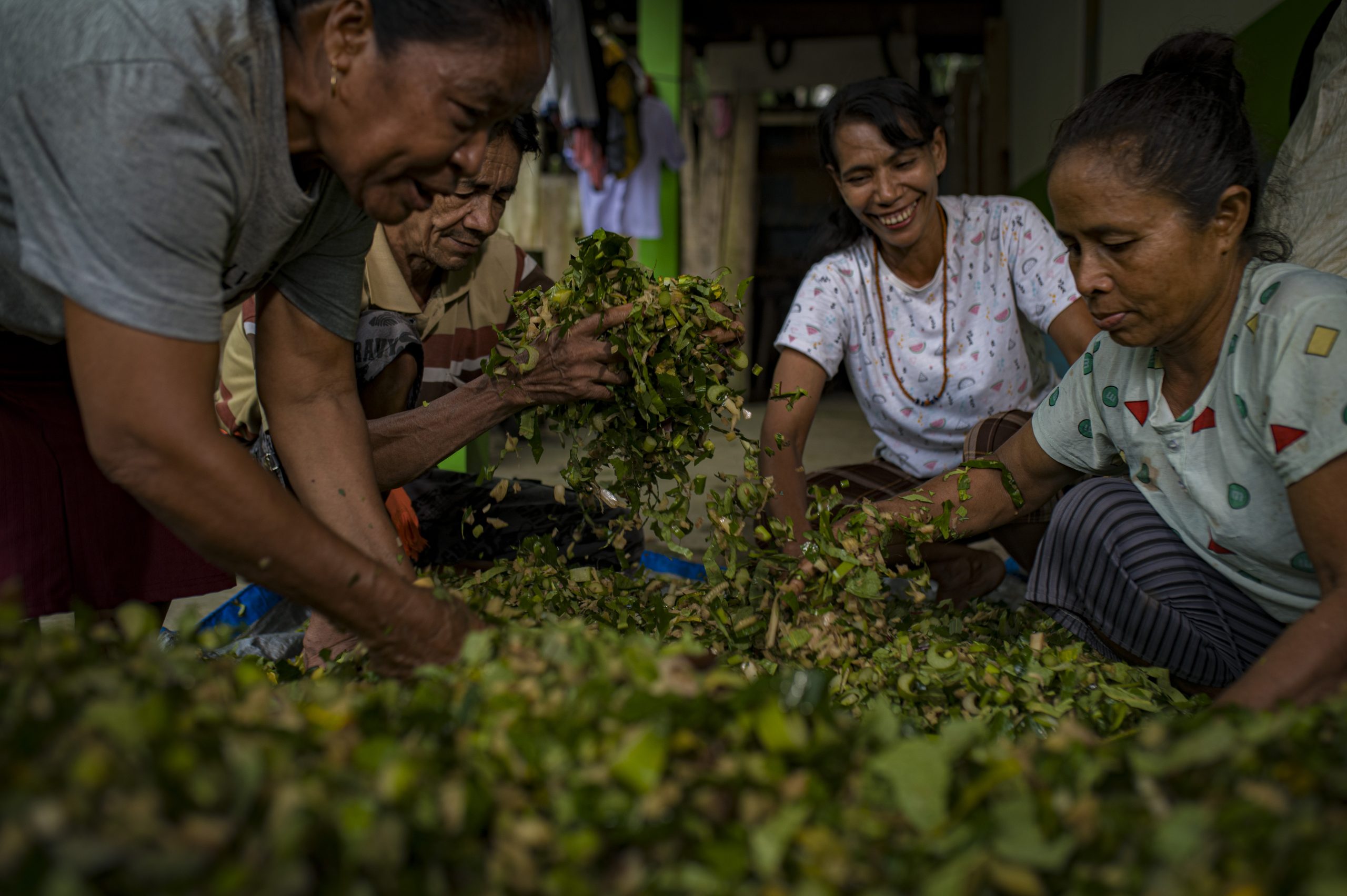
Pig Feed
In other village, Melati Group makes pig feed. The demand for pigs in Sumba is relatively high, not only for consumption, but also for various rituals, like entering a new house, births, and deaths.
This pig feed is very interesting because it is a no boiling or cooking method. Instead, it is fermented feed, a mixture of EM4, mineral 10, granulated sugar, and concentrates.
This feed group is driven by women. They gather in one house and bring the feed ingredients, such as taro leaves, papaya, sweet potatoes, banana stems, pumpkins, and jackfruit, then mix them altogether.
The ingredients are chopped into small pieces and left for two to three days. The ingredients are ready to use. “If you have made fermented feed, depending on the amount of stock, it can be used for up to a week,” said Kristina Bulu.
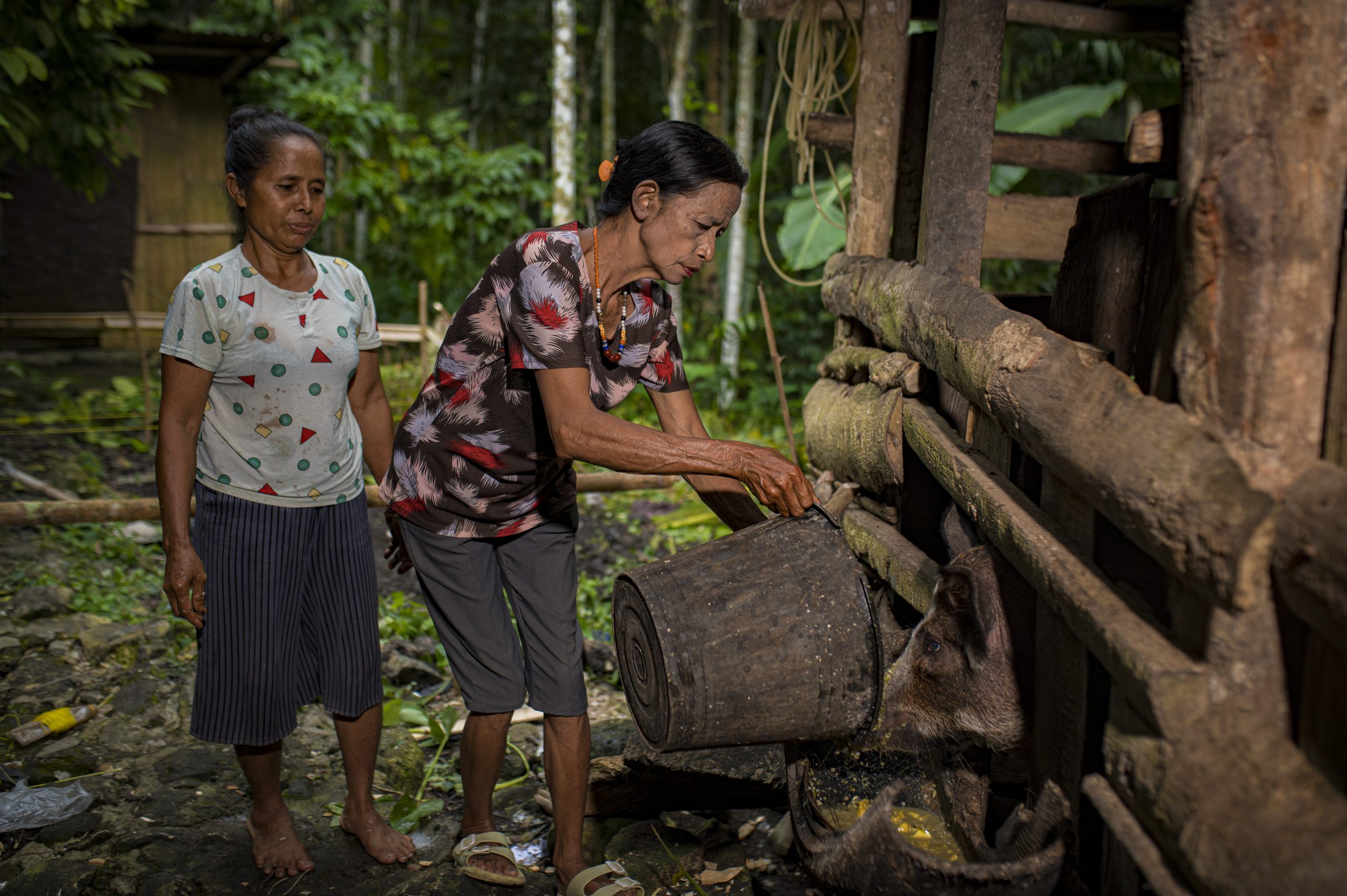
This fermented pig feed is very helpful for people as it saves time. Without fermented feed, every household raising pigs would have to cook every day. For feeding pigs in the morning, the raw materials are cooked in a large pot at night. “So at night, you cook to feed the family. Then cook again for the pigs,” Kristina continued.
In 2024, when BangKIT introduced the fermentation method, everyone was so enthusiastic. “Ah, why didn’t we know this before? Now it’s so much easier, no hassle,” said Margaretha Dede Ngara, the leader of the Melati group.
Margaretha also said that the short processing time of the fermented feed with a longer shelf life brings people closer. They can meet in the morning and evening without having to go home to cook pig food.
Other advantages of the fermented feed, the pig manure does not smell so bad; It boosts pig growth because pigs eat voraciously. Cooked feed can only last a day because the raw materials are mushy.